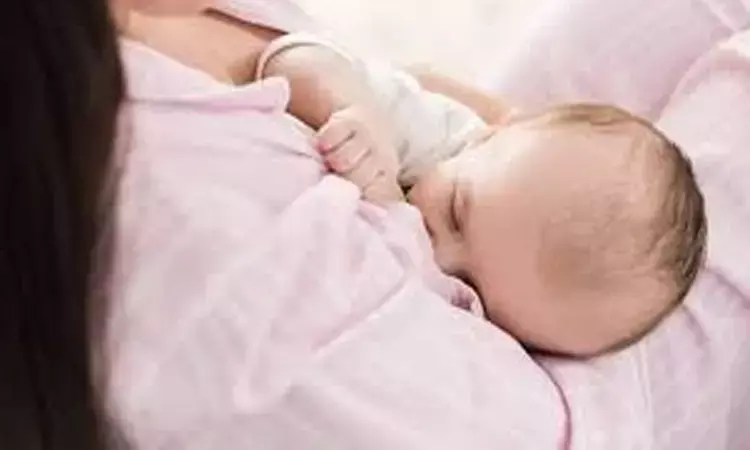- Home
- Medical news & Guidelines
- Anesthesiology
- Cardiology and CTVS
- Critical Care
- Dentistry
- Dermatology
- Diabetes and Endocrinology
- ENT
- Gastroenterology
- Medicine
- Nephrology
- Neurology
- Obstretics-Gynaecology
- Oncology
- Ophthalmology
- Orthopaedics
- Pediatrics-Neonatology
- Psychiatry
- Pulmonology
- Radiology
- Surgery
- Urology
- Laboratory Medicine
- Diet
- Nursing
- Paramedical
- Physiotherapy
- Health news
- Fact Check
- Bone Health Fact Check
- Brain Health Fact Check
- Cancer Related Fact Check
- Child Care Fact Check
- Dental and oral health fact check
- Diabetes and metabolic health fact check
- Diet and Nutrition Fact Check
- Eye and ENT Care Fact Check
- Fitness fact check
- Gut health fact check
- Heart health fact check
- Kidney health fact check
- Medical education fact check
- Men's health fact check
- Respiratory fact check
- Skin and hair care fact check
- Vaccine and Immunization fact check
- Women's health fact check
- AYUSH
- State News
- Andaman and Nicobar Islands
- Andhra Pradesh
- Arunachal Pradesh
- Assam
- Bihar
- Chandigarh
- Chattisgarh
- Dadra and Nagar Haveli
- Daman and Diu
- Delhi
- Goa
- Gujarat
- Haryana
- Himachal Pradesh
- Jammu & Kashmir
- Jharkhand
- Karnataka
- Kerala
- Ladakh
- Lakshadweep
- Madhya Pradesh
- Maharashtra
- Manipur
- Meghalaya
- Mizoram
- Nagaland
- Odisha
- Puducherry
- Punjab
- Rajasthan
- Sikkim
- Tamil Nadu
- Telangana
- Tripura
- Uttar Pradesh
- Uttrakhand
- West Bengal
- Medical Education
- Industry
Separating infants from COVID-19-positive mothers doesn't improve outcomes

New Rochelle, NY -Separating infants from COVID-19-positive mothers doesn't improve outcomes is opinion of Dr Alison Stuebe, MD, President of the Academy of Breastfeeding Medicine.She has addressed the risks and benefits of separating infants from COVID-19-positive mothers following birth.
Her commentary has been published in Breastfeeding Medicine, the official journal of the Academy of Breastfeeding Medicine.
Although multiple public health organizations recommended keeping mothers and infants together, the United States' Centers for Disease Control and Prevention advises facilities to consider separating mothers and babies temporarily until the mother is no longer contagious, and recommends that the risks and benefits of temporary separation should be discussed with the mother by the healthcare team.
In her commentary, Dr. Stuebe, Professor of Obstetrics and Gynecology at the University of North Carolina School of Medicine and distinguished professor in infant and young child feeding at the Carolina Global Breastfeeding Institute at the UNC Gillings School of Global Public Health, notes that there is no evidence to show that early separation of infants and mothers with suspected or confirmed COVID-19 improves outcomes. While separation may minimize the risk of transmission of the virus from mother to infant during the hospital stay, it has potential negative consequences for both mother and infant.
Dr. Stuebe outlines several risks of separating mothers and infants in the hospital, which disrupts breastfeeding and skin-to-skin contact during the critical hours and days following birth. For example, infants who lack skin-to-skin contact with their mothers tend to have higher heart rates and respiratory rates and lower glucose levels. The separation also stresses the mother, which could make it more difficult for her to fight off the viral infection. In addition, separation interferes with the provision of maternal milk to the infant, which is important for the development of the infant's immune system. Separation also disrupts breastfeeding, which puts the infant at increased risk of severe respiratory infections, including pneumonia and COVID-19.
"As we navigate the COVID-19 pandemic," Stuebe writes, "I am hopeful that we can center mothers and babies and remember to first do no harm."
Arthur I. Eidelman, MD, Editor-in-Chief of Breastfeeding Medicine, concurs that "there is no need or indication to categorically separate infants from COVID-19 suspect or positive mothers other than in circumstances wherein the mother's medical condition precludes her caring for the infant. Feeding mothers' own breast milk, either by nursing or by feeding of expressed milk, is OK and desired!"
For more details click on the link: http://dx.doi.org/10.1089/bfm.2020.29153.ams
Hina Zahid Joined Medical Dialogue in 2017 with a passion to work as a Reporter. She coordinates with various national and international journals and association and covers all the stories related to Medical guidelines, Medical Journals, rare medical surgeries as well as all the updates in the medical field. Email: editorial@medicaldialogues.in. Contact no. 011-43720751
Dr Kamal Kant Kohli-MBBS, DTCD- a chest specialist with more than 30 years of practice and a flair for writing clinical articles, Dr Kamal Kant Kohli joined Medical Dialogues as a Chief Editor of Medical News. Besides writing articles, as an editor, he proofreads and verifies all the medical content published on Medical Dialogues including those coming from journals, studies,medical conferences,guidelines etc. Email: drkohli@medicaldialogues.in. Contact no. 011-43720751


